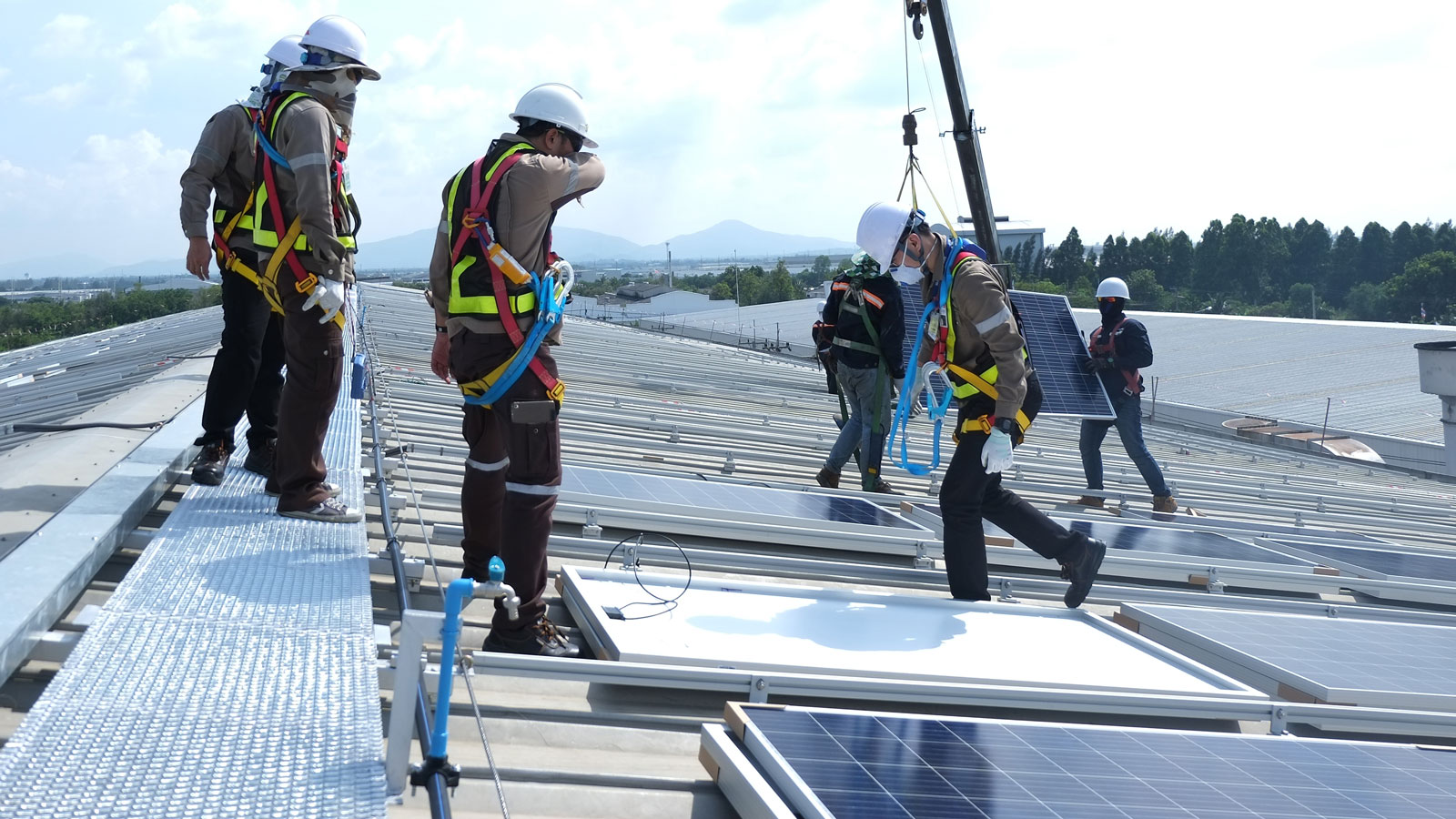Superstores, specifically Walmart superstores, are familiar to nearly all Americans. The sprawling layout and iconic blue and yellow colors of the nation’s largest retailer are found throughout the country. In fact, 90% of Americans live within 10 miles of a Walmart store. But the space one story up—the vast roof on a vast store—is largely unoccupied and unnoticed: acres upon acres of unobstructed, sun-exposed rooftops. These rooftops represent untapped potential. With the addition of rooftop solar panels, these unoccupied spaces could generate energy. An ongoing campaign from Environment America’s Research and Policy Center is urging Walmart to put solar on its unused rooftops.
Local elected officials speak out.
Representing a total of over 9 million constituents, 72 elected officials signed onto a letter, delivered July 28, calling on Walmart to install solar on all viable roofs and parking lots by 2035. The letter, addressed to Walmart CEO Doug McMillon, emphasizes the importance of collaboration between the public and private sectors in combating the climate crisis, and describes how the installation of rooftop solar would be a win for the environment, consumers and businesses alike.
The elected officials who signed the letter hail from cities ranging in size from Houston, Texas with over 2 million residents to towns like Shallotte, North Carolina with under 5,000 residents; from Maine to Florida to Washington to Hawaii. Though the constituencies they represent are as varied as the nation itself in terms of political opinion, climate, density and population, each signatory has recognized the benefits that installing rooftop solar on Walmart can bring both to their immediate communities, and to the country—and the planet—as a whole.
In Texas, a state plagued by extreme heat and the associated stress on the power grid, 15 elected officials signed on, the most of any state. To these elected officials, rooftop solar brings assurances of grid stability instead of the blackouts which could otherwise prove dangerous—perhaps even deadly—to their constituents.
“Businesses, residents and government must all come together and do their part. Solar not only saves businesses money, but ensures a reliable source of power for business and customers in the face of a weak and unreliable state power grid,” said Abbie Kamin, Houston city councilmember.
Vikki Goodwin, a state representative from Austin, echoed a similar sentiment: “By installing solar on Walmart superstores, you’ll be reducing greenhouse gas emissions and you’ll be aiding in the resiliency of the Texas energy grid.”
Over 1000 miles north, Ope Niemeyer, mayor of Brookings, South Dakota, knows the benefits of rooftop solar firsthand: “We have numerous roofs accommodating solar panels on SDSU’s campus here in Brookings and it has made an impact on their bottom line for utility cost.” Niemeyer sees solar installations on Walmart and other big box retailers as a way to further those cost savings for consumers and businesses alike, both in his own community and in others across the country.
In Athens, Ohio, Mayor Steve Patterson and four of the city’s seven councilmembers—Council President Christine Knisely and members Alan Swank, Ben Ziff and Samuel Crowl—each cite ways that Athens can incorporate and benefit from installing solar on their local Walmart superstore. Council President Knisely’s description of the Athens Walmart’s roof reflects patterns across the country. She noted that: “The superstores have a mass area to put significantly-sized solar panels. In Athens, this rooftop is totally exposed to the sun; no trees nearby.”
Mayor Patterson described how the local impacts of national action can help the city meet its own goals: “It is imperative for the City of Athens, OH in our goal of reducing citywide carbon emissions by 50% by the year 2030.” Councilmember Crowl sees how the initiative would benefit cities across the nation in the same ways it would benefit Athens: “I support Solar on Walmart stores for the triple bottom line of sustainability: people, planet and economic prosperity.”
Five states over, Kyle Schlachter, mayor of Littleton, Colorado, summarized his own support of the initiative: “The roofs and parking lots of big box stores are ideal for installing rooftop solar. In addition to the environmental benefits of renewable energy, installing solar panels on big box stores directly benefits people, our communities, and the environment.”
These elected officials, among others, are adding their voices to an ongoing movement. Just last year, more than 150 organizations signed a similar letter calling on Walmart to go big on solar. Individuals across the country are continuing to voice their support for the initiative through Environment America’s public petition.

